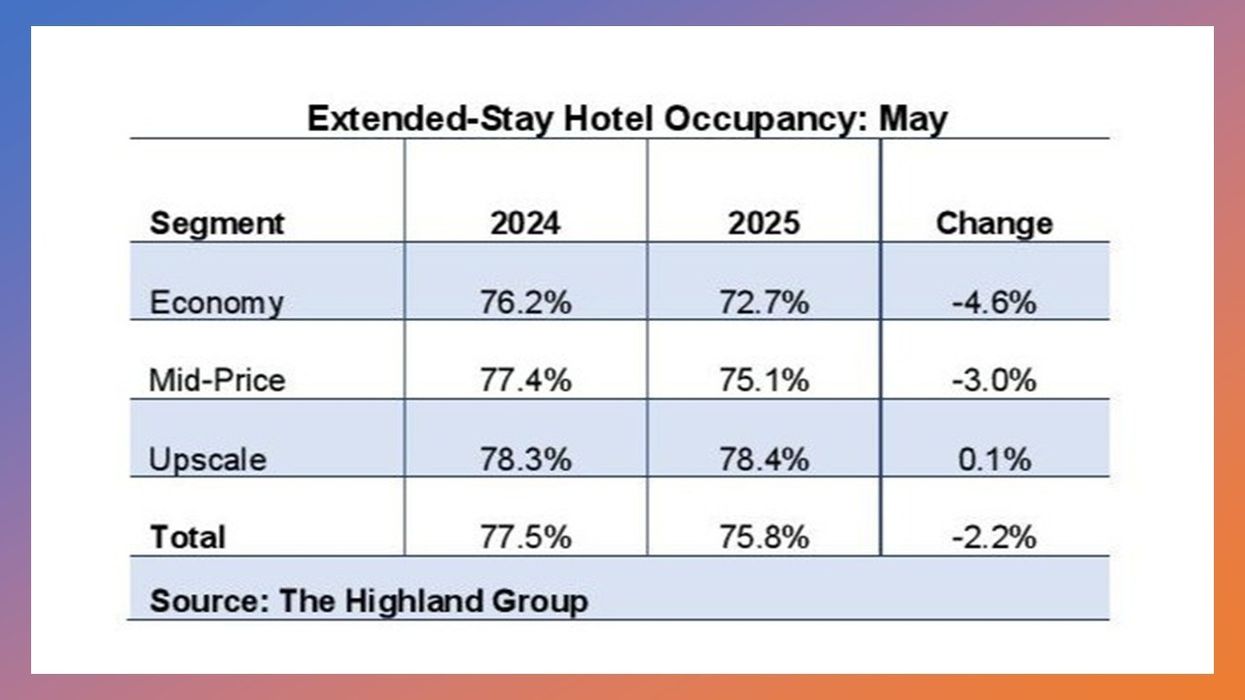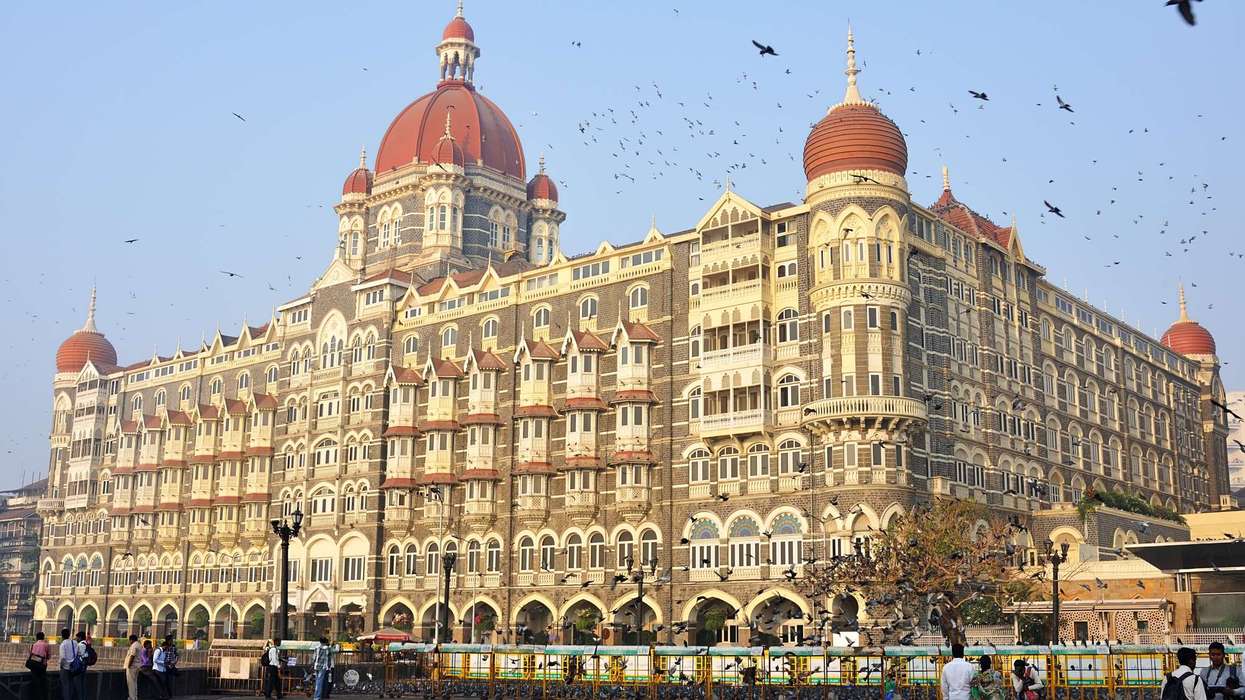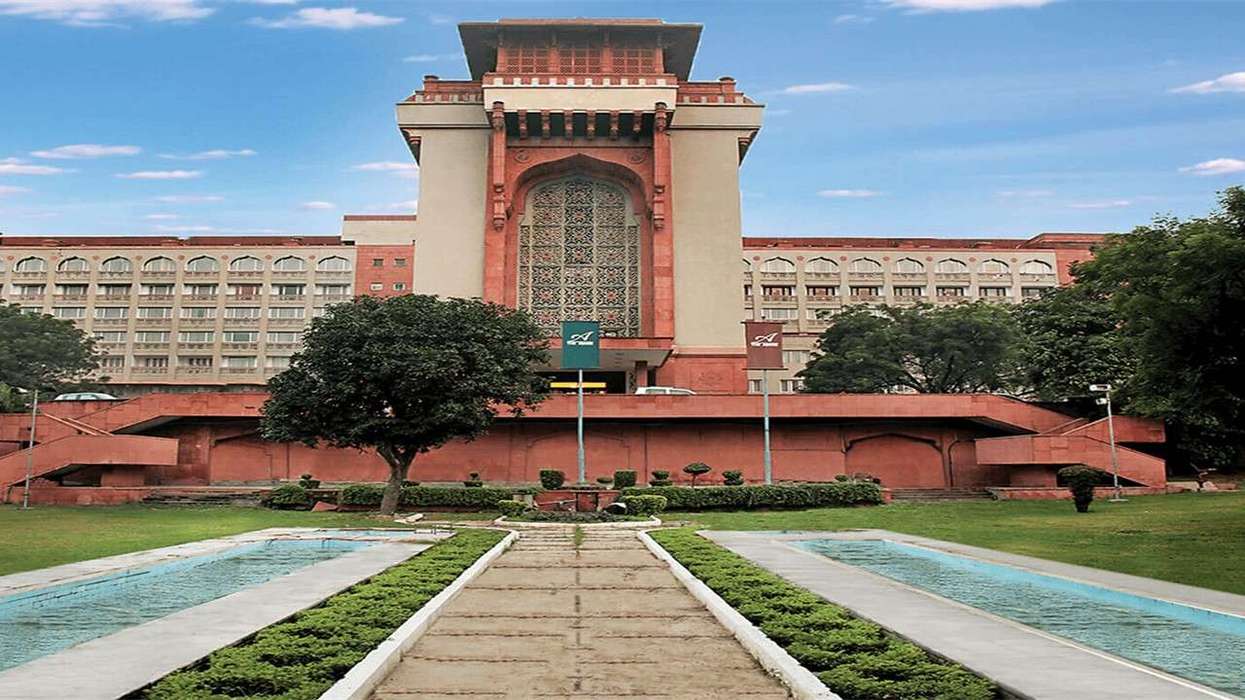Summary:
- Extended-stay occupancy fell 2.2 percent in May, the fifth straight monthly decline; ADR and RevPAR also dropped for a second consecutive month.
- May marked 44 straight months of supply growth for the segment at 4 percent or less, with annual growth below the 4.9 percent long-term average.
- Extended-stay room revenues rose 0.5 percent, while total industry revenue grew 0.9 percent, led by segments with little extended-stay supply.
EXTENDED-STAY HOTEL occupancy fell 2.2 percent in May, the fifth consecutive monthly decline, exceeding the 0.7 percent drop reported for all hotels by STR/CoStar, according to The Highland Group. Extended-stay occupancy was 10.5 percentage points above the total hotel industry, at the lower end of the long-term average premium range.
“The Highland Group’s U.S. Extended-Stay Hotels Bulletin: May 2025” reported that extended-stay hotel ADR declined again in May after a 0.7 percent drop in April, the second decrease since March 2024. The decline was partly due to a higher share of economy segment supply in May compared to May 2024.
Economy and mid-price extended-stay segments posted ADR gains in May, while STR/CoStar reported a 1.4 percent ADR decline for all economy hotels and no change for mid-price hotels. ADR for all upscale hotels fell 0.2 percent in May, according to STR/CoStar.
Extended-stay hotel RevPAR fell 2.6 percent in May, the second consecutive monthly decline since September 2024. The overall drop exceeded individual segment declines due to a higher share of economy segment supply in May compared to May 2024. STR/CoStar reported May RevPAR declines of 2.4 percent for all economy hotels, 0.7 percent for mid-price hotels and 0.6 percent for upscale hotels.
Extended-stay room nights available rose 3.2 percent in May 2025 compared to May 2024, partly due to the inclusion of Executive Residency by Best Western in the database starting January 2025.
May marked 44 consecutive months of supply growth at 4 percent or less, the report said. Calendar year supply growth has ranged from 1.8 percent to 3.1 percent over the past three years, below the long-term 4.9 percent annual average.
The 10.5 percent increase in economy extended-stay supply and limited changes in mid-price and upscale segments were mainly due to conversions, as new construction in the economy segment accounted for an estimated 3 to 4 percent of rooms opened over the past year.
“While extended-stay supply growth remains below its long-term historical average, it has exceeded the change in demand for three consecutive months,” said Mark Skinner, The Highland Group's partner.
Supply comparisons were affected by re-branding that shifted rooms between segments, de-flagging of hotels that no longer met brand standards, and sales to multi-family firms and municipalities, the report said. Conversion activity is expected to decline, and total extended-stay supply growth for 2025 will remain below the long-term average.
Revenue charts
Extended-stay hotel room revenues rose 0.5 percent in May year over year, The Highland Group said. STR/CoStar reported a 0.9 percent increase for the total hotel industry, driven by luxury and upper-upscale segments, which include little extended-stay supply.
According to STR/CoStar, May room revenues declined 3.4 percent for all economy hotels, increased 0.6 percent for midscale hotels, and rose 0.7 percent for upscale hotels.
Excluding the February 2024 leap year impact, extended-stay hotel demand rose 1 percent in May, the second-lowest monthly gain since March 2024. STR/CoStar reported a 0.1 percent increase in total hotel industry demand. Adjusted for the extra day in February 2024, extended-stay demand increased in 29 of the past 30 months.
In May, The Highland Group reported that economy, mid-price, and upscale extended-stay segments outperformed their hotel classes in first-quarter 2025 RevPAR growth versus 2024. Occupancy fell in the economy and mid-price segments, bringing overall extended-stay occupancy down to 70.9 percent.






